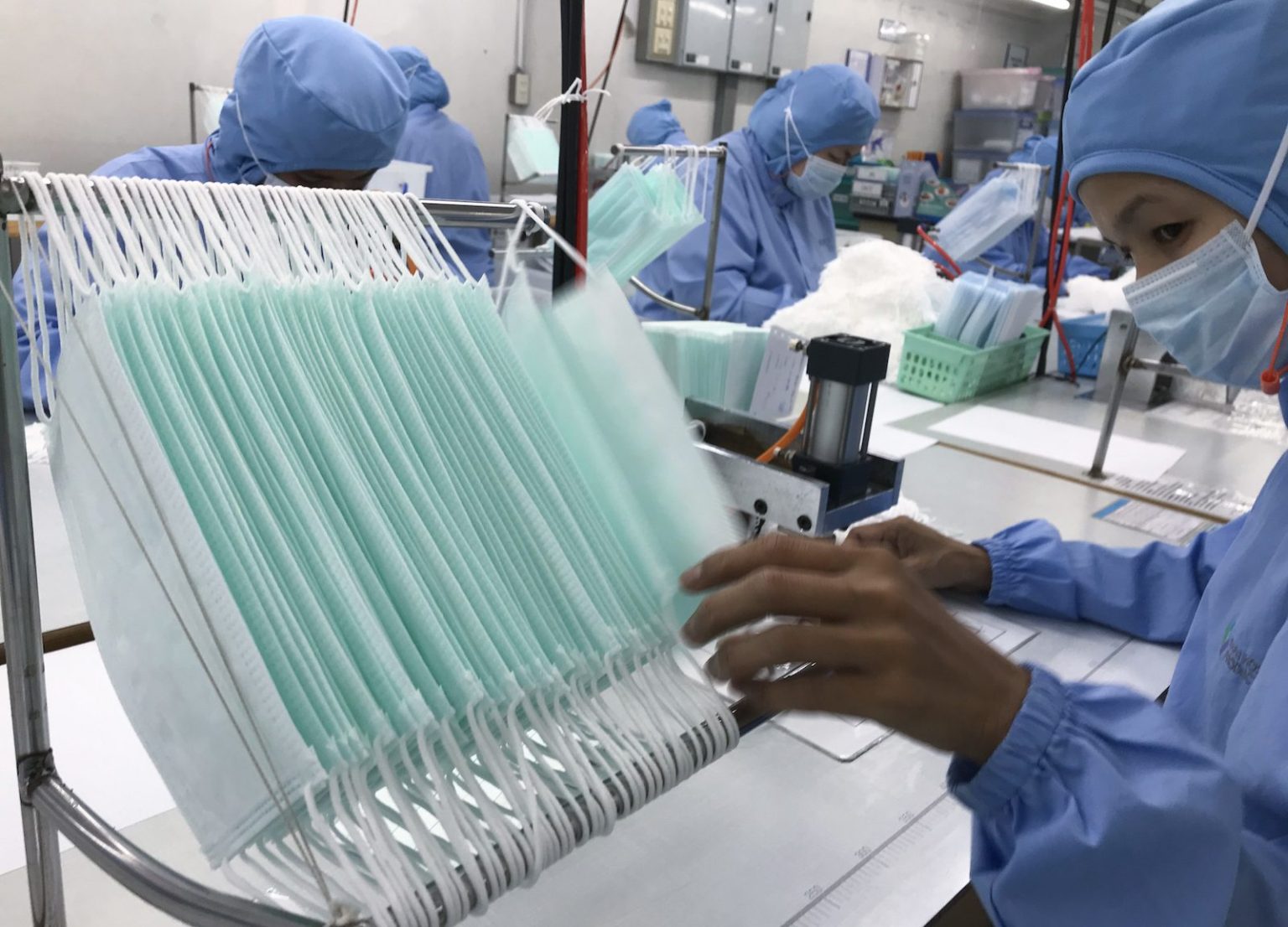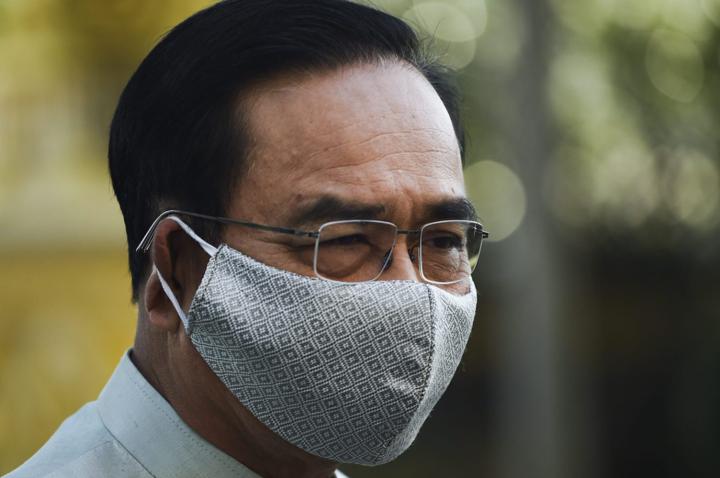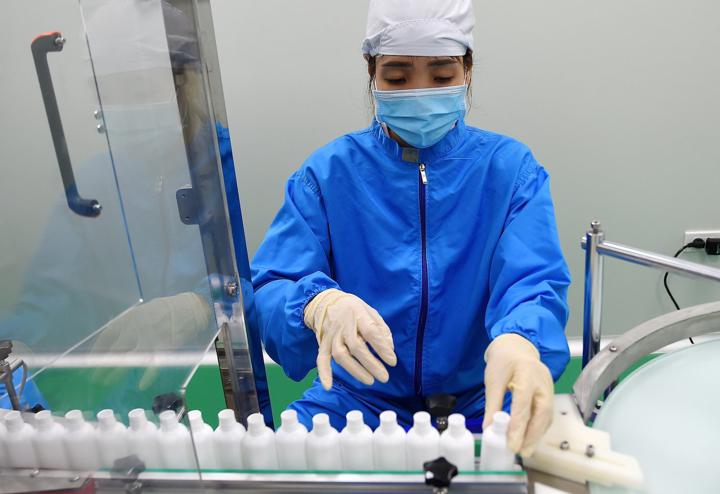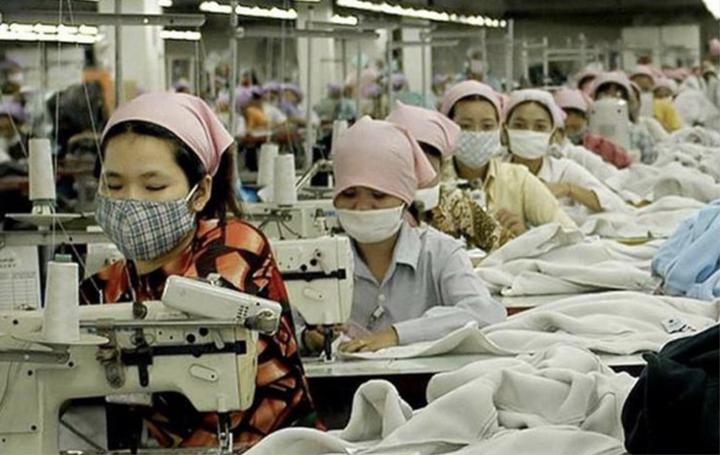It didn’t take long for Thailand’s Board of Investment (BOI) – the government’s office for promoting foreign direct investment (FDI) – to spot an opportunity in the fast-evolving Covid-19 crisis which is likely to induce a 5-7% contraction of the Thai economy this year.
On April 13, the BOI announced new, enhanced tax incentives to attract FDI to Thailand’s medical sector, one of the so-called “S-curve”, higher-tech industries the government has been promoting for the past three years.
Between 2017-2019, BOI drew 44 applications worth 12 billion baht ($375 million) to produce X-Ray machines, CT Scanners, medical appliances and personal protection equipment (PPE) such as medical gowns, face masks, gauze and cotton swabs.
“We believe this (crisis) will help promote Thailand as a good medical (production) hub in the region and even on a global basis,” said BOI Secretary General Duangjai Asawachintachit. “The situation in Thailand today is a testimonial to our strong potential, not only our potential in crisis management but also our potential as a medical hub,” she told a press conference.
Thailand was the first country outside of China to report an overseas Covid-19 infection on January 13 – a Chinese tourist. More than 10 million Chinese tourists visited the kingdom last year. Despite the obvious threat of a massive outbreak of the disease, Thailand’s factious ruling coalition government was initially caught flat-footed and rudderless in its response.
Things changed swiftly after March 22 when 188 new cases were reported in a single day. Soon thereafter a city lockdown was announced in Bangkok. Former army commander Prime Minister Prayut Chan-ocha declared a state of emergency soon thereafter, replete with night curfews, stay-at-home orders, booze bans and social-distancing measures imposed in public places.
-
![]()
Thai Prime Minister Prayut Chan-ocha arrives for a Cabinet meeting at Government House in Bangkok, March 24, 2020. Photo: AFP via NurPhoto/Anusak Laowilas
By April 13, when BOI was announcing its new Covid-19 promotional package, the pandemic was seemingly coming under control with 2,551 reported cases, 1,218 recoveries and 38 deaths. The latest figures for Thailand (May 10) were 3,004 cases, 2,787 recoveries and 56 deaths.
While Prayut can be credited for listening to medical experts, most observers attribute Thailand’s relatively good performance to the country’s well developed health system, both public and private, that not only provides universal health care to the local population but also attracts more than 2 million medical tourists a year, at least before Covid-19 closed the kingdom’s borders.
Vietnam has performed even better. As of May 10th it had reported 288 confirmed cases, 241 recoveries and zero deaths. While Vietnam’s health care system is still underdeveloped, the communist country does have a highly proficient state security system which proved successful in closing borders, barring new arrivals, imposing health measures nationwide and tracking possible infections.
All countries in the Association of Southeast Asian Nations (ASEAN) have thus far been spared the kind of Covid-19 case explosions and soaring death rates seen in the United States and Europe, thanks perhaps to the region’s hotter climate, a fondness for face masks and cultural affinities for social distancing.
As the lockdowns in the region are slowly being lifted (raising the possibilities of Covid-19 comebacks as witnessed in Singapore), economists and some government offices are starting to mull how to leverage ASEAN’s comparatively good Covid-19 containment performance into more related FDI.
“I think if they made an effort to publicize this (performance) that would be a selling point for getting FDI later,” said Michael Kokalari, chief economist at VinaCapital, a leading private equity fund in Vietnam.
VinaCapital has been encouraging Vietnam’s government to prepare a White Paper on its Covid-19 containment measures, which included a “scoring system” for factories on their performances in imposing strict hygiene and social distancing measures.
-
![]()
A worker manufactures hand sanitizer at a factory in Hanoi on February 14, 2020 amid concerns of the Covid-19 coronavirus outbreak. Photo: AFP/Nhac Nguyen
If ASEAN governments are not yet thinking about attracting FDI to their shores in the post-Covid 19 world, they should be. The global battle for FDI is going to get a lot tougher, according to the United Nations Conference on Trade and Development (UNCTAD).
UNCTAD, in its upcoming “World Investment Report 2020: International Production Beyond COVID-19 Crisis” to be published on June 9, predicts global FDI will contract 30-40% in 2020 and 2021.
“We’ve already had a slowdown of global FDI for a decade, and now we get the Covid-19 on top of that which will push it in the same direction with further barriers to trade, further barriers to investment, further pull backs of international production,” Richard Bolwijn, head of investment research at UNCTAD in Geneva, told Asia Times.
Since the 2008/2009 financial crisis, opposition to globalization has been on the rise, negatively impacting both trade and investments. This trend was exacerbated by new technologies (automation lessens the need for outsourcing production), worries about the environment and, most recently, US President Donald Trump’s trade war with China.
“Covid just added to the trends,” said Bolwijn, who sees a growing global shift towards bringing production back to home markets.
“There will be huge pressure both by the public and by companies and governments on making global supply chains more resilient,” Bolwijn predicted. “And that will have an impact on the typical global supply chain industries, and it is exactly those industries in which ASEAN has been quite strong in recent years,” he noted.
The big question for ASEAN is whether it will somehow prove an exception to the rule. It has before.
-
![]()
Workers in a Cambodian garment factory. Photo: Facebook
In 2018, while worldwide FDI outflows fell by more than 1%, inflows to ASEAN jumped 11.5% to $155 billion. During the first half of 2019, when global FDI outflows shrank by 5%, they leapt another 20% in the ASEAN region, according to UNCTAD figures.
ASEAN’s anomalistic FDI performance was attributed primarily to multinational companies pulling out of China and seeking alternative production bases.
Vietnam, with its large, fairly young population of potential laborers, and its proximity to China’s production clusters in such sectors as electronics, has proven a prime beneficiary of the trade war-driven China exodus.
“When the trade war came, we were the first ones to say that this could be a positive for Vietnam because you already had this trend of factories moving from China to here because wage inflation was so much higher in China than in Vietnam,” said VinaCapital’s Kokalari. “Covid is another development that will prompt factories to move from China to here,” he claimed.
To do so, multinational companies will need to invest in or encourage the development of clusters of suppliers in Vietnam as they did in China. Whether they will be willing or able to do so in the post-pandemic world, however, is debatable.
“The momentum of investment diversion from China to ASEAN is still there but we’re getting a big shock (from Covid-19) this year and next, and at some point it is hard to see how ASEAN can escape it,” UNCTAD’s Bolwijn said.
Covid-19 will inevitably have a negative impact on ASEAN, but if the region can emerge from the pandemic relatively uncontaminated there could be an upside, economists say.
“Longer term, there will be a downsized, much more compact global supply chain given the risk of this pandemic,” Supavud Saicheua, advisor to Thailand’s Kiatnakin Phatra Financial Group, told a recent forum.
“Therefore you need strong public health care credentials to be able to remain attached to the new global supply chain. I think Thailand does have the public health care credentials to be able to do that,” he argued.
One thing most economists agree on, though, is that the FDI picture after Covid-19 is going to change significantly.
“We can think of the FDI switching from a shotgun approach – spraying factories all over the place – to a more precise rifle type approach,” Kokalari said. “In that environment firms will now start to be more careful and more conscious about what’s the best place for a factory location.”



























